Samia Bzioui
Thingification: War at Home and Abroad
E1507 Summer Showcase (2024)
Curated by Dustin Kuhns
Political borders are a modern invention—even more so than the rigid, rectangular canvas. Thingification grapples with the boundaries of both.
Between the fraying thread of the canvas and spun wire, humanity’s entanglements far and wide are the foreground of this collection. Works inter- and intra-act freely despite their borders (not unlike us). Viewers negotiate a familiar tension: what does real, messy life have to do with its more polished, social forms? Imagine holding an old, hand-wrought, imported clay tile in one hand and its glossy, manufactured relative in the other—these materials have deeply entangled stories. Yet they still try, like us, to each find places of belonging that won’t affect their undoing.
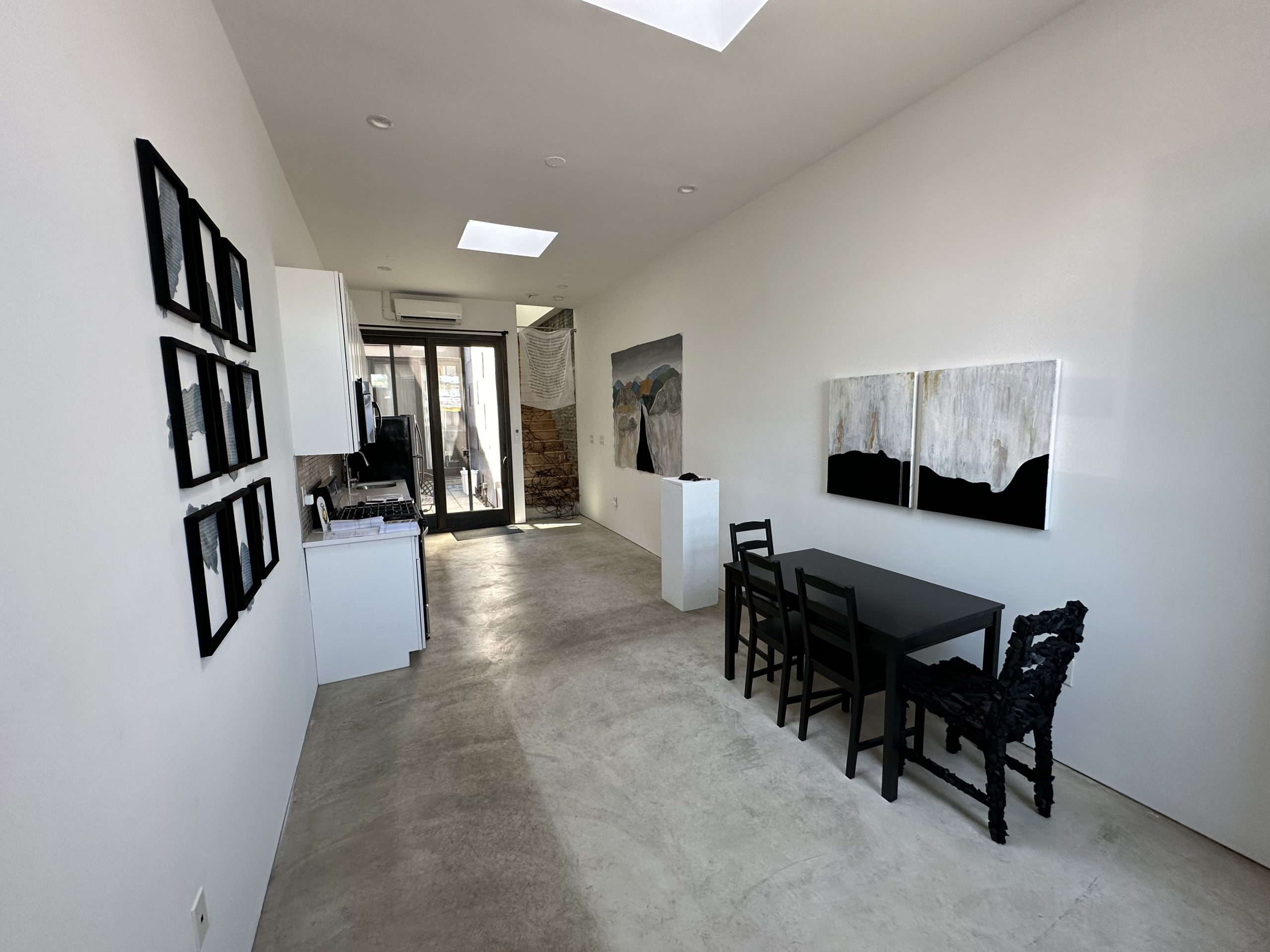
Loose, unstretched, and unfinished canvases support figures in their betrayal of the constraints of modern abstraction. By exposing the construction, frayed edges blur the familiar borders of symbolic interchange. In this multi-media exhibition, it is appropriate that the only familiar, stretched, rectangular canvases double down on the alienation of the figures befogged within.
Gloss and texture give mysterious life to bodies. This material allure evokes further play on the borders between the virtual world of the canvas and the real world, where light betrays and sensations make your hands more trustworthy than your eyes for untying tangled up knots.
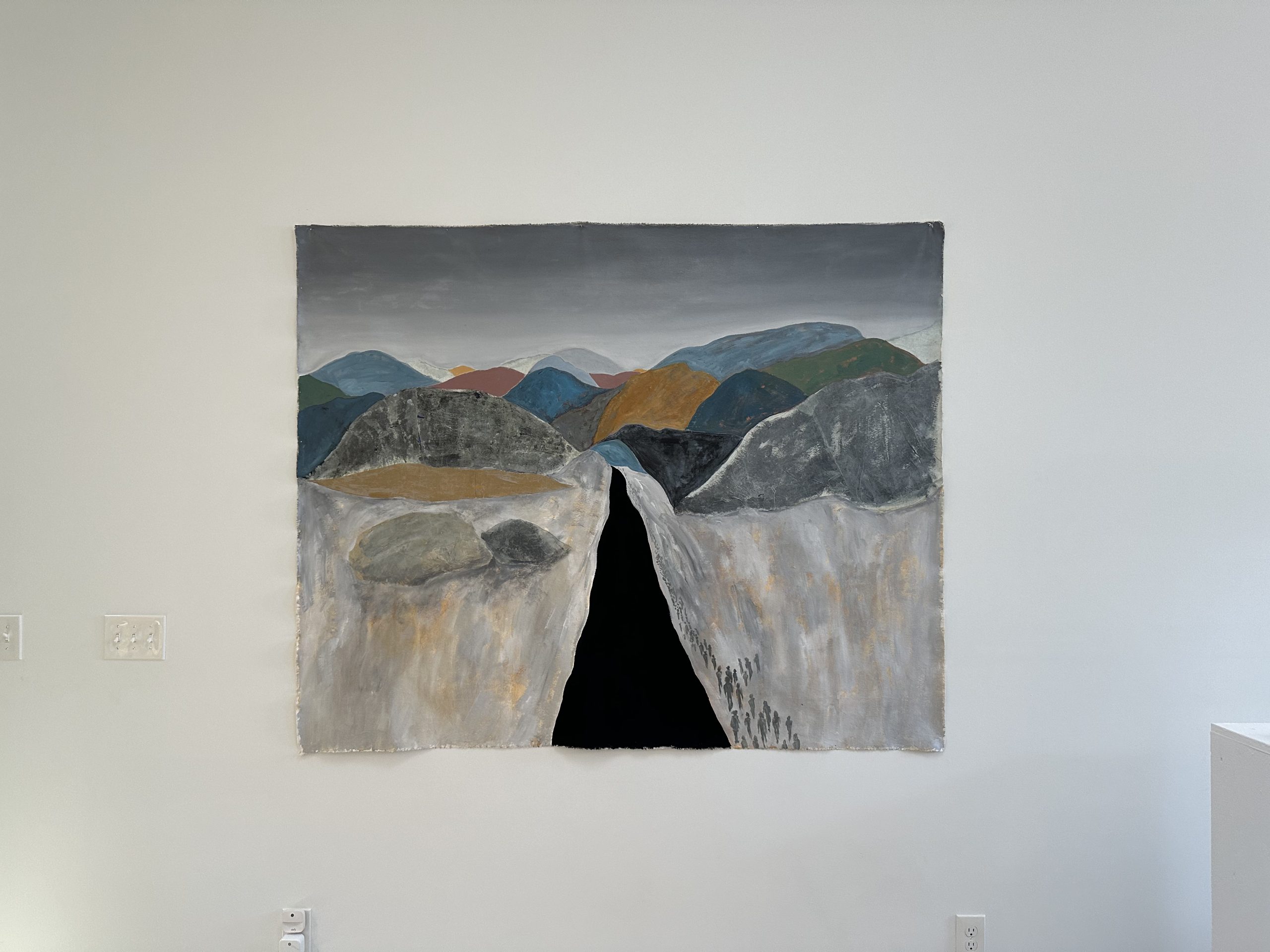
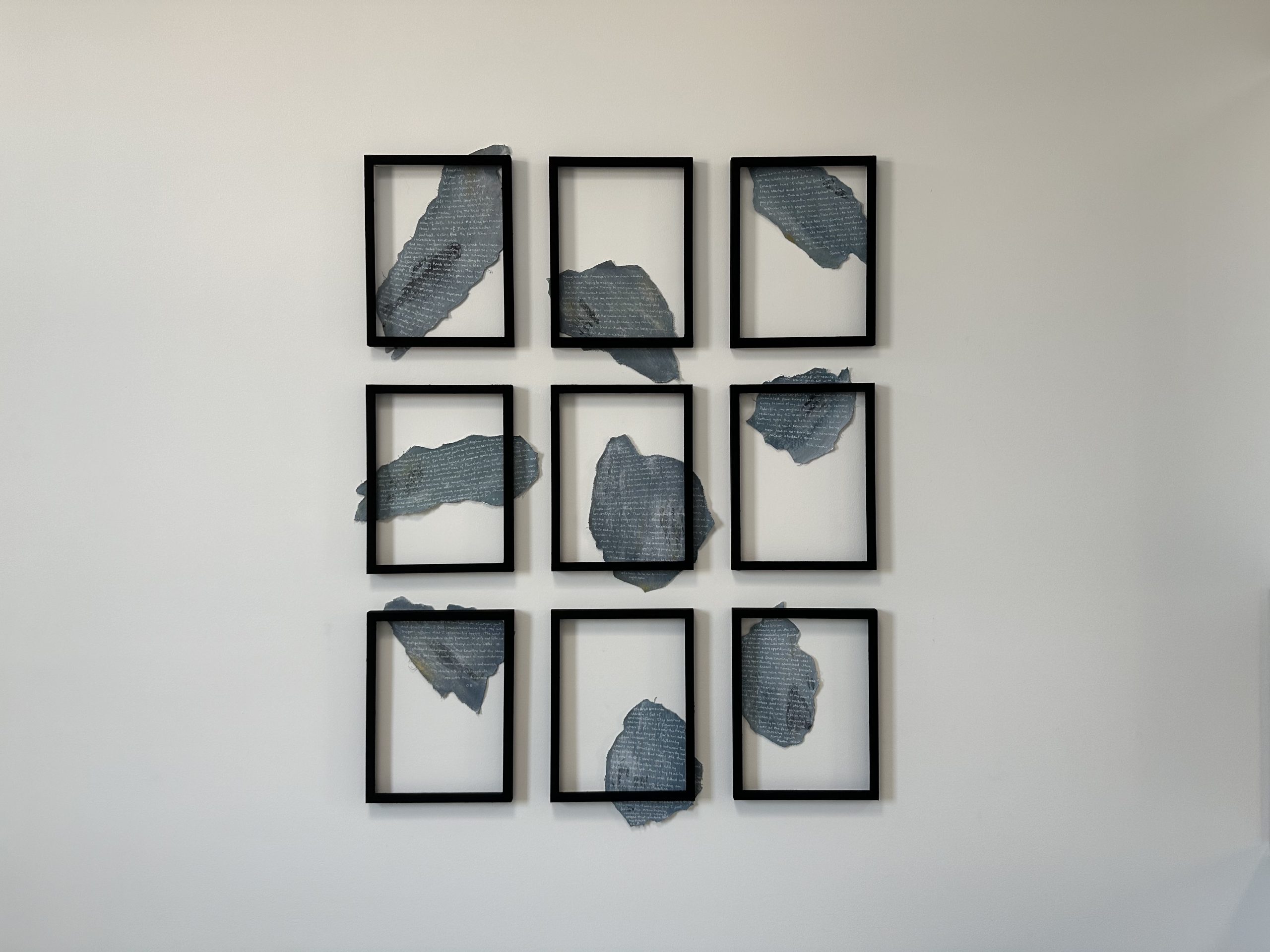
Blackness is not monolithic. On one hand, dark wavy lines—sometimes the outline of a curly-haired silhouette, other times a terrestrial abstraction—define intense but absent, foreground forms that dominate each canvas. Yet, on the other hand, untouched manufactured finishes set up familiar corners and lines—for better or worse. The charcoal’s matte blackness captures light as though it must hoard it for when it will eventually burn.
A Seat at the Table embodies the treacherous negotiations of life on a globally entwined, post-colonial Earth. Charcoal, and its relative coal, are deep, terrestrial ironies: organic material refined and starved of oxygen to burn even hotter. Paradoxically, the very building blocks of life form excellent fodder for modern kilns and power plants. Charcoal is not the glossy, molded, or even hand-worked clay of a luxury mosaic tile, but it still acquiesces with elegance to this organic, three-dimensional mosaic. Crucially, the sculpture’s form still follows its function—perniciously inviting you to sit and soil yourself. Daily, we consent to forms like this, like fuel, that keep our engines running despite any consequent destructions. Afraid of some greater, unknown undoing, global humanity is unified by a fortuitous penchant for rationalizing the most quotidian cruelties in service to the status quo.
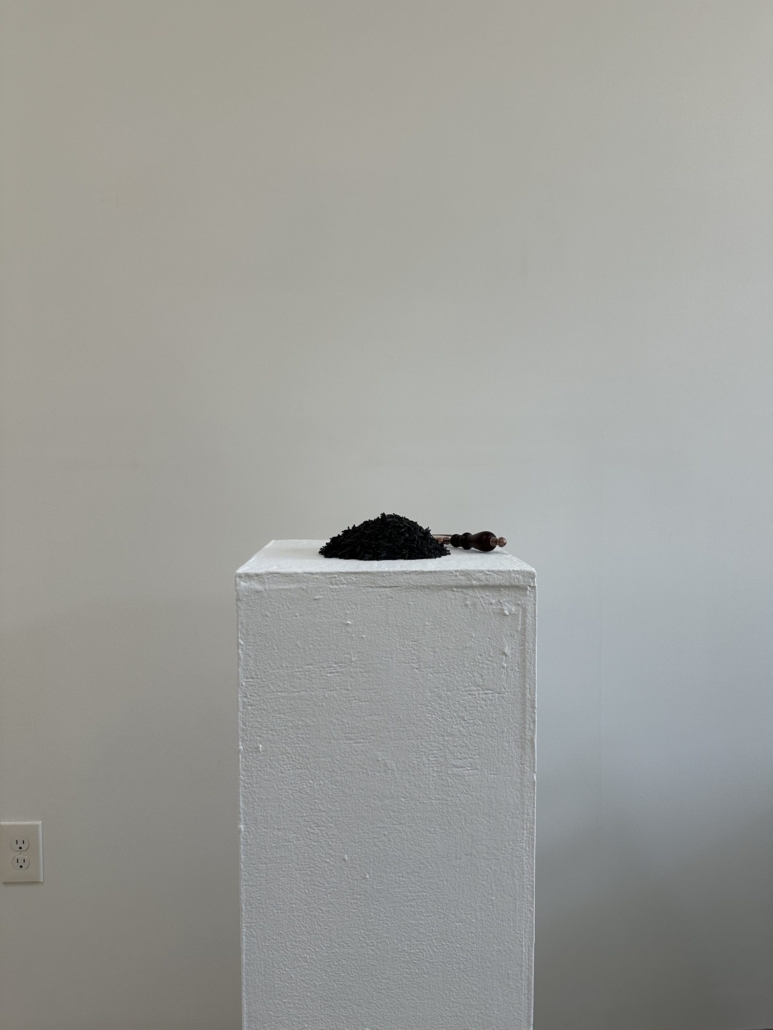
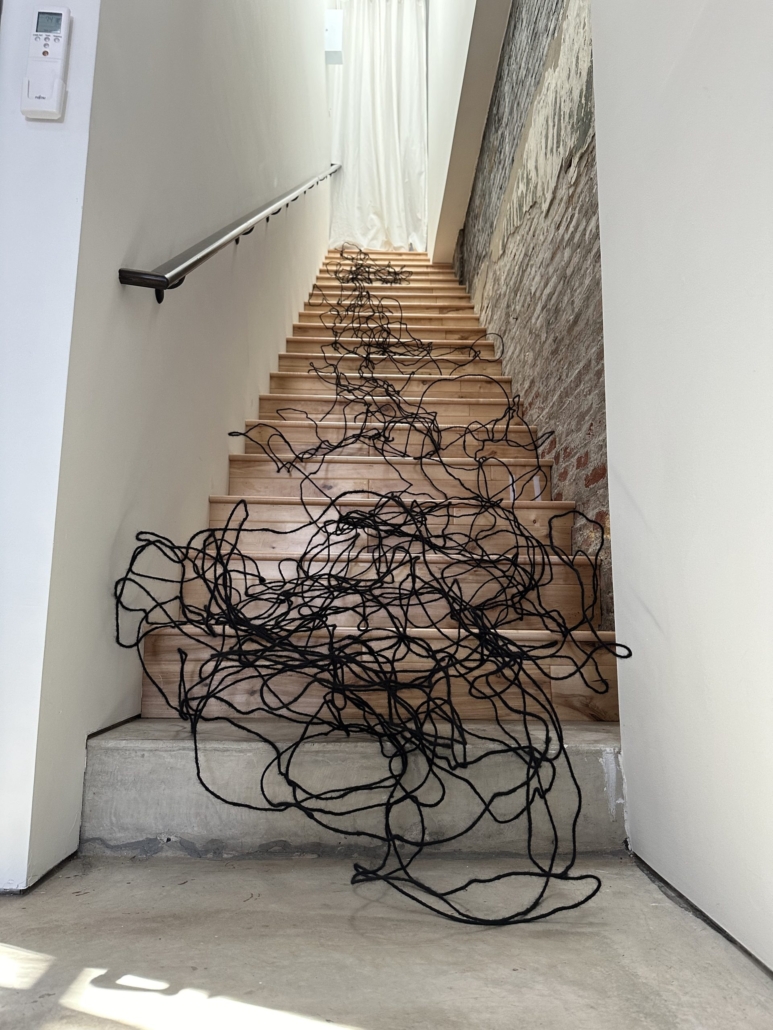
Twilit and distant, or gray and descended, something like a sky appears often on Samia’s canvases. This mysterious blue-gray connects and obscures simultaneously. Despite the disorienting hustle of modern life, we can all still look up at our private patch in a shared sky. For some, it’s framed neatly or off-center from a riad in Marrakesh. For others, it stretches out—a long tangled wild atop an alien journey. By the sky, we are all connected. By the same sky, many are dwarfed, shrouded by the runaway, and accelerating, abstraction of planetary society.
Can we untie these knots? Take a seat. You’re invited to undo yourself.
